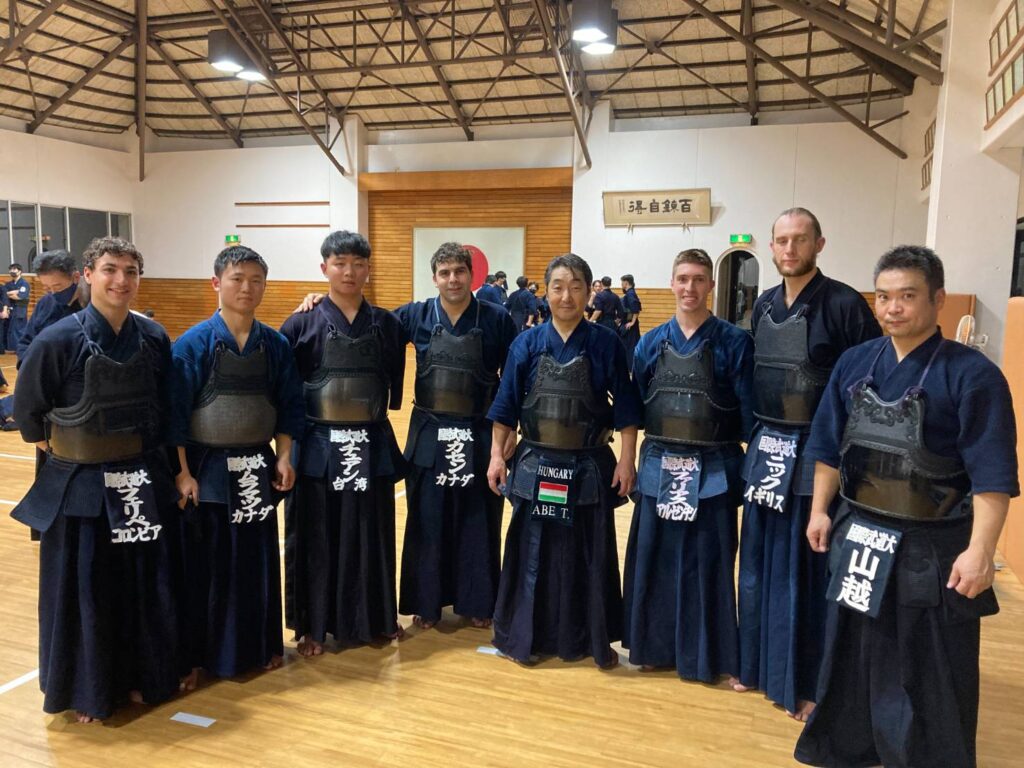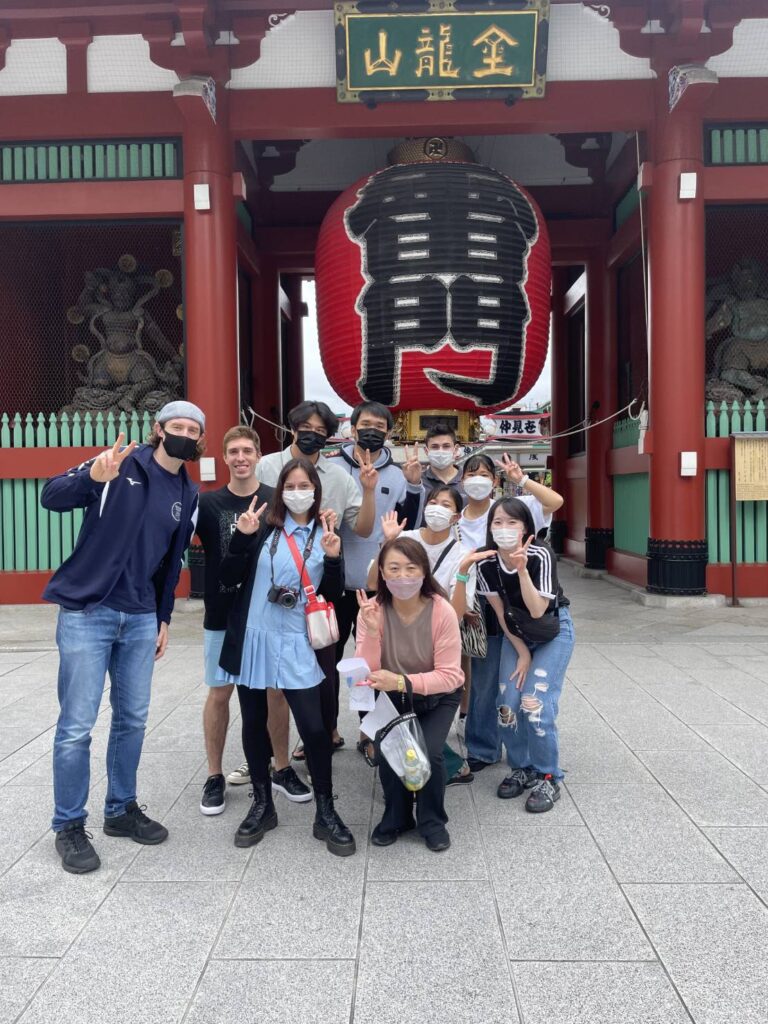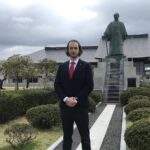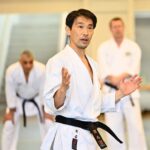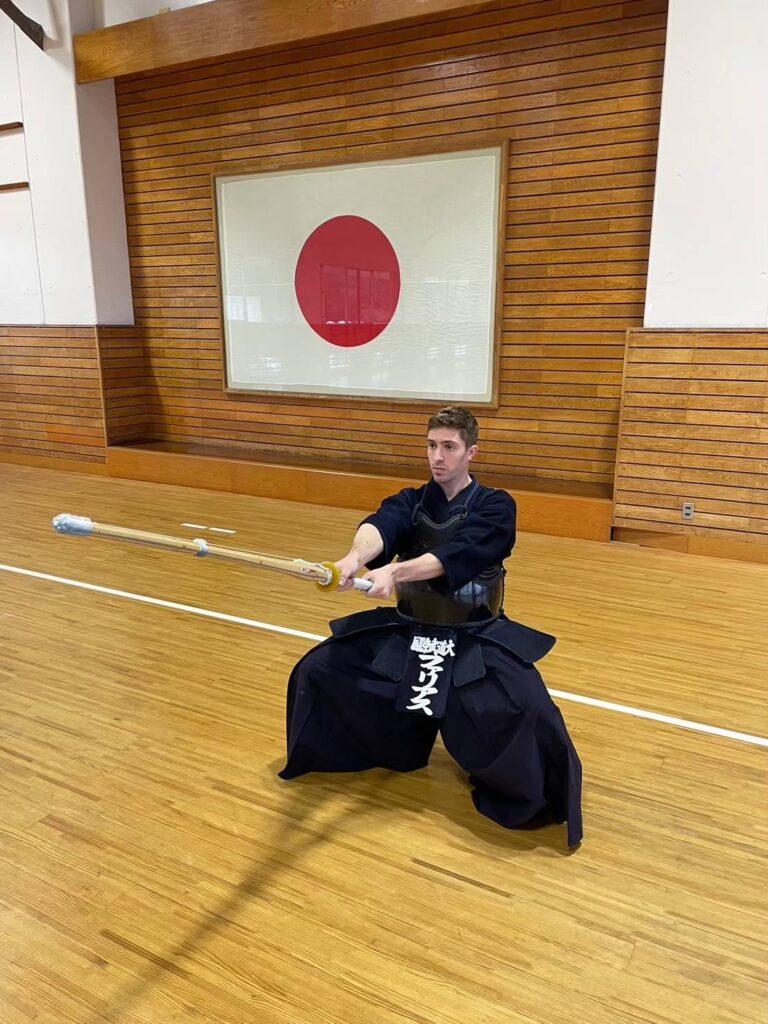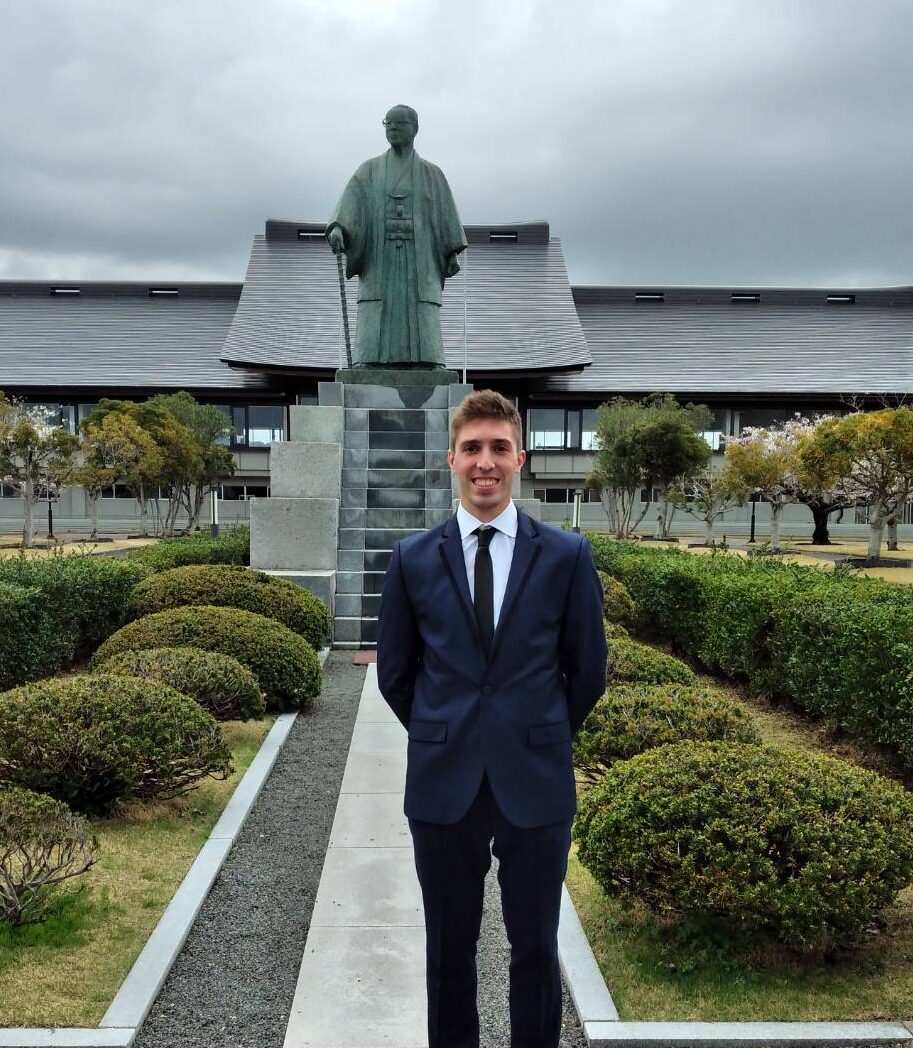
Introduction Of Graduates
VOLUME 01
Mr. Santiago Farías
<Profile>
Nationality:Argentinian
Major Budo:Kendo
Before coming to IBU I practiced Kendo in the only Dojo available in my city, where I have been an instructor for about 8 years. Due to the lack of a sensei, I tried to travel three or four times a year to national seminars, and take two-week training trips, 3 times to Brazil, twice to Uruguay since there was a JICA sensei there, and 2 times to Japan. I also complemented my Kendo training with running and gym training.
I started Kendo at the age of 13, at the beginning of high school. My first Kendo instructor was Sergio Guardia, who was a precursor of Kendo in my city but three years later he moved to another city. My senpai Alexis Roldán continued to lead the classes and I continued under his guidance until he delegated the direction of the Dojo to me.
After finishing university I wanted to dedicate myself for an extended period to strengthening my Kendo, and the Bekka course seemed the most appropriate to me, since there is double training every day under the direction of excellent teachers. Furthermore, being part of the Argentine National team, I wanted to prepare for the world championship.
In the bekka course I was able to experience the training that Japanese students undergo to prepare for inter-university tournaments, which are some of the highest level Kendo competitions. Additionally, I was able to attend classes for instructor training, such as Basic Training, Theory classes, Nihon Kendo Kata, how to teach beginners, etc. In addition, there are Japanese classes every week and periodically there are Japanese culture classes, which are very interesting.
Overall, I think the course keeps us very busy, training, studying Japanese and learning about budo, but it is also an opportunity to strengthen ties with people from Japan and other countries. I think the friendships formed during the bekka course are very valuable and I am happy to stay in touch with the people I met.
For those interested in taking the Bekka course, I would recommend that they try to condition themselves physically since the training is demanding, but above all, prepare mentally to attend training every day. In most Dojos outside of Japan you train about 3 or 4 times a week, and in general you always want to train. But, it is possible that during the Bekka course you feel very tired and do not feel like going to practice. However, it is important to put the concept “Gaman” into practice and try to attend as many training sessions as possible, as this is what is expected of us during the course. It is a year dedicated to Kendo training. During training, try to train as much as you can with the Japanese students, and also try hard to do keiko with the sensei. It is very difficult to do keiko with them sometimes because there are many students, but if you try every day you will be able to do keiko with the senseis on many occasions. Also, I would recommend that you study Japanese before coming, since all classes are in Japanese and daily life takes place in this language.
My goal in Kendo for several years has been to win a world championship. I have put a lot of effort into training, and although as I level up I can also appreciate the high level that many competitors have, especially in Japan, I will continue training and competing with that goal in mind.
I think that during my stay at IBU I have managed to improve my basics, so when I return I would like to transfer that to the rest of the practitioners in Argentina so we can have a solid base from which Argentine Kendo can develop. For a few more years I want to continue as part of the National team and in the future, once I have retired, I would like to be a coach of the national team.
I believe that Kendo is a budo that preserves Japanese culture in a very deep-rooted way. It has rigorous training, through which we develop physical skills, but other qualities such as perseverance and effort are also developed. Furthermore, respect for those more experienced than us is very noticeable, and I believe it allows personal development through intergenerational exchange. Learning from the experiences of those who have traveled a longer path than us is essential for growth.
Also, I think that being able to train with people of other levels, something very common in the practice of Kendo, allows us to remember where we have been and what we still need to do, helping us develop humility: we were all beginners and we are all students.
Some of the things I liked most about IBU is that it has very good facilities (the residence for foreigners is very comfortable), and the international office always helps you with whatever you need, so that you can get the most out of your year studying in Japan. I think the most notable thing about IBU is that it has very good teachers, with great knowledge of Kendo and very strong, who push you to exceed your limits. If you dedicate yourself diligently to training, you will surely be able to increase your level by far. I think that if someone really likes training Kendo and it plays an important part in their life, the bekka course is a more than good experience to develop as a kendoka.
Finally, I would like to share this two interviews, one made to IBU kendo club head coach, Iwakiri Kimiharu Sensei (Kyoshi 8th Dan), about the Bekka course and the other made to Nick Richardson (UK) and myself, about our experience at IBU.

